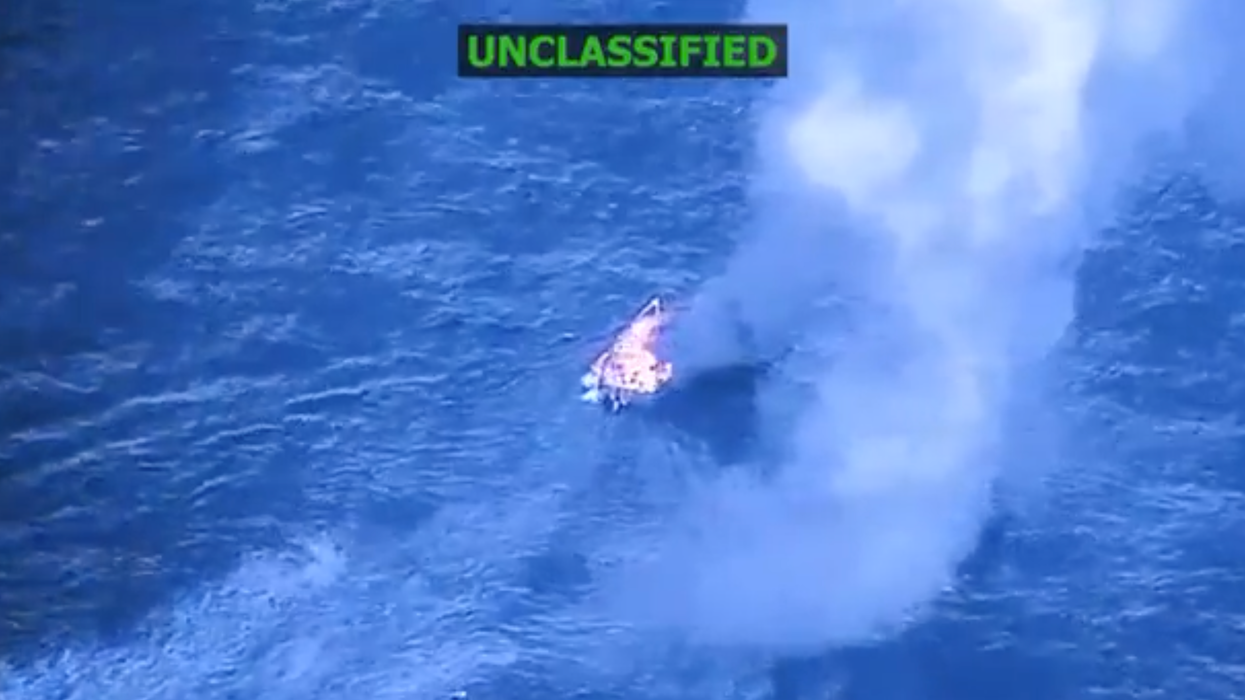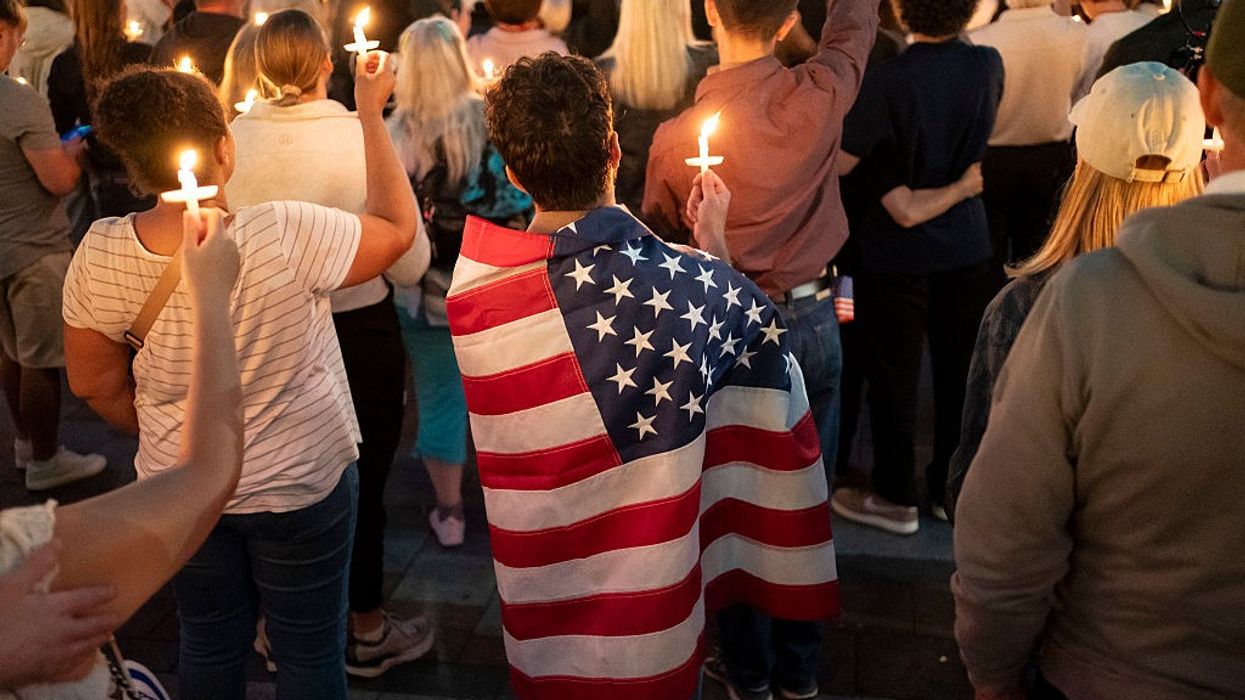Will We Give Birth to a Loving or Shackled Future?
A tale of two births challenges us to consider what kind of world we want to create.
It occurs to me that “giving birth to the future” isn’t simply a metaphor.
I say this as I continue wrestling with infinity—that is to say, working on the book project I began a decade ago: a book about creating peace. My exploration into all this goes beyond politics, global or otherwise. There are countless ways that humanity needs to change and, indeed, is changing. For instance:
For much of the 20th century, the childbirth process in this country didn’t invite a lot of active participation from parents. Mothers in labor were given heavy doses of drugs, and fathers were banished to waiting rooms.
So wrote David Colker in the Los Angeles Times in 2015, shortly after the death of Elisabeth Bing (at age at 100!), the German-born woman who cofounded Lamaze International in 1960 and helped profoundly change the way we birth the future. When she was a young woman, Bing, then living in England, began working as a physical therapist in a hospital. This, Colker wrote, was “when she first viewed childbirth. It was being treated more like a disease, she thought, than a joyous occasion.”
I can’t begin to describe how grateful I am that I was present at my daughter’s birth nearly 40 years ago—not just present but, oh God, part of it.
She helped bring caring and sanity—and love—into the birth process for many (though not all) women, and for men as well, for which I cry hallelujah. Suddenly dads could now be part of the birth process beyond passing out cigars. That’s not even a joke anymore; men, if they’re involved in their child’s birth, have a role larger than sitting in a room with the other soon-to-be dads, waiting for the doc to come in and cry, “It’s a girl!” or “It’s a boy.”
Empowering both women and men—and partnering them—has helped launch a social shift that’s still in progress, bringing men into the core of nurturing, the family’s loving center. I can’t begin to describe how grateful I am that I was present at my daughter’s birth nearly 40 years ago—not just present but, oh God, part of it.
I came home for lunch that day in July and there was Barbara out in the backyard, radiant and excited, weeding the coleus bed. She told me that her water had just broken. She also was feeling slight contractions—light, easy things that mainly seemed to amuse her. They were delightful curiosities. Neither of us was really sure this was true labor, but there was all that fluid leaking all over her panties. We went to the hospital. Almost immediately, Barbara’s contractions turned serious. She went into active labor, and I went into my role as breath-and-contraction helper. Her back pain was severe, but I was always with her, pressing my hand as hard as possible against her back, giving her relief with my counterpressure and breathing—“ahee, ahoo!”—along with her. This lasted about six hours. It was the longest six hours of both our lives.
The only time it got close to desperate was well into the evening. “Talk me out of using drugs,” she begged me. I knew she could make it and gave her all the encouragement I could muster. Turns out she was moving along beautifully. By 8:30 pm she was fully dilated.
Then came the most intense part of the process, the pushing. She was at this for nearly two and a half hours, from 8:30 till the birth at 10:50. In this phase, I added a new duty to the man’s role. I was the guy who counted to 10 during each push. She usually got three pushes in per contraction at this stage. Later—as I saw the hair on the baby’s head appear at the vaginal opening—my role became more than just counter. My encouragement became intense, and linked to the rhythm of Barbara’s pushing. “Come on, Barbara, down and out. Down and out! DOWN AND OUT! COME ON, BARBARA!”
When our daughter finally arrived, I cut the umbilical cord. The nurse put the baby up on Barbara’s stomach, and later I held her, danced around with her. We had brought a radio with us, as our Lamaze teacher had advised: Bring music! As I held Alison Grace, Ravi Shankar began playing the sitar. And our squalling newborn became silent in my arms.
“A gentle birth,” writes Barbara Harper, “takes place when a woman is supported by the people she chooses to be with her during this most intimate time. She needs to be loved and nurtured by those around her.”
But there’s also another type of future we also continue to birth: “My feet were still shackled together, and I couldn’t get my legs apart.”
Beyond the intense torture inflicted on the mother, what in God’s name have we just done to the child?
The words are those of a woman, given the pseudonym Maria Jones, quoted some years ago in an Amnesty International report. She was pregnant and had been arrested for violating a drug law. She was in jail in Cook County, Illinois. When she went into labor, she was handcuffed and shackled to her bed.
“The doctor came and said that yes, this baby is coming right now,” she said, “and started to prepare the bed for delivery. Because I was shackled to the bed, they couldn't remove the lower part of the bed for the delivery, and they couldn't put my feet in the stirrups. My feet were still shackled together, and I couldn't get my legs apart. The doctor called for the officer, but the officer had gone down the hall. No one else could unlock the shackles, and my baby was coming but I couldn't open my legs.”
“Finally, the officer came and unlocked the shackles from my ankles. My baby was born then. I stayed in the delivery room with my baby for a little while, but then the officer put the leg shackles and handcuffs back on me and I was taken out of the delivery room.”
No bonding. No nurturing at the breast. The traumatized infant is whisked off to some antiseptic holding pen to lie alone in its cold new world. This isn’t rational. It’s not even sane. Beyond the intense torture inflicted on the mother, what in God’s name have we just done to the child?
Shackled births were banned in Cook County some years ago, shortly after the Amnesty report was made public. But they were only allowed—indeed, the norm—in the first place because the prisoner-mom, as well as the child, had been dehumanized, in the name of the law, no less. This is the legacy we still must transcend. We owe it to the future.


